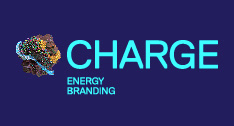|
|
|
|
|
Retail Supplier Says Its Contract Met Requirements In Rules; Alleges PSC Staff Complaint Relies On "Naming Convention" In Alleging Contracts Not Valid
The following story is brought free of charge to readers by VertexOne, the exclusive EDI provider of EnergyChoiceMatters.com
Greenlight Energy, Inc. filed a response to a show cause order issued by the Maryland PSC and answer to a Staff complaint which had alleged that Greenlight was, "committing fraud and engaging in deceptive practices," among other alleged violations
Greenlight in its response said that contracts cited by Staff meet the COMAR and other applicable requirements, and alleged that Staff relies on a "naming convention" to find that the contracts do not include the required provisions
See background on the Staff complaint here
Greenlight also said that the sales which Staff alleged violate the Maryland Telephone Solicitations Act (MTSA) are not subject to the MTSA because, under Greenlight's hybrid process, the customer (not Greenlight) initiates the transaction with Greenlight, and the "attempt to sell" is not made entirely by telephone
Greenlight also said that it would not resume door-to-door sales in Maryland. Greenlight said that it suspended its marketing and enrollments in Maryland prior to Staff's complaint, and said that it would focus on online enrollments upon the resumption of marketing, after developing a compliance plan in concert with Staff
Greenlight said, "the evidence discussed and included in this Answer and Response
demonstrates that no license restrictions, fines, penalties, or further proceedings are warranted. In
response to concerns raised by the Commission’s Consumer Affairs Division ('CAD'), Greenlight
voluntarily suspended marketing and enrollment activities in Maryland before Staff filed the
Complaint. Greenlight received its first final decision (renamed from closing letters) from CAD
on May 9, 2022, with another five received within two weeks. Within thirty days of that first 'final
decision,' Greenlight halted door-to-door marketing and online advertising in Maryland.
Greenlight has not actively marketed its services to new customers in Maryland since the third
quarter of 2022 and has not enrolled any customers in Maryland since January 3, 2023 (a website
enrollment), demonstrating that it takes these complaints very seriously."
"While Greenlight
disagrees with Staff’s allegations and conclusions in the Complaint, Greenlight is committed to
working with Staff and CAD to address their concerns and resume operations in Maryland with
enhanced consumer protections and disclosures, enrollment procedures, and compliance
mechanisms. Greenlight intends to complete this process over the next ninety days, at which point
Greenlight can submit a compliance plan to Staff and CAD. Going forward, Greenlight intends to
re-engage on a limited basis in Maryland, marketing exclusively online. Greenlight has not
conducted any door-to-door sales in Maryland since June 20, 2022," Greenlight said
"Given the facts of this case, as detailed below, and Greenlight’s demonstrated commitment
to enhancing its sales and marketing processes through its extensive voluntary suspension of sales
and marketing, as well as its robust process reforms, Greenlight respectfully requests that the
Complaint be dismissed, and that no license suspension, revocation, civil penalty or other
Commission action should be taken against Greenlight," Greenlight said
Greenlight said, "The Staff Complaint filed in this matter references twenty-four (24) customer complaints
filed with CAD against Greenlight as the basis for the relief requested by Staff. Without
minimizing the complaints at issue, it bears noting that the vast majority of Greenlight’s customers
are satisfied with their enrollment and service. The volume of satisfied customers suggests that the
experience of Greenlight’s customers is positive. Greenlight denies the Complaint’s assertion that
it committed fraud and deceptive marketing practices, and/or failed to comply with the
Commission’s consumer protection regulations."
Greenlight said, "Greenlight acknowledges that a total of 34
customer complaints were filed with the Consumer Affairs Division against Greenlight from 2020
through 2022, but, as discussed below, the Complaint’s allegation that CAD 'found in favor' of
the customer in 24 of those cases is not accurate. Furthermore, Greenlight resolved the complaints
to the customers’ satisfaction, providing customers with credits or refunds, even in situations
where CAD determined that no relief was warranted."
"To the extent CAD made any findings in favor of the customer, in nearly all of the cases
those findings were based solely on allegedly deficient processes for transmitting customer
contracts, or delays in the processing of drop requests, and CAD did not find that Greenlight had
engaged in any deceptive or fraudulent marketing practices," Greenlight said
"To be clear – Greenlight takes every customer complaint seriously and its goal is to have
100% satisfaction, with zero complaints. While it is correct that Greenlight saw an uptick in
complaints in 2020-2022, it is important to put those complaints in context and look at the specifics
of each complaint before jumping to the conclusion that the complaints 'reveal a pattern and
practice of regulatory noncompliance and systemic violations of Maryland law' as alleged in the
Complaint. The CAD complaints identified by Staff represent less than four-tenths of one percent
of Greenlight’s enrollments during the period in question. In each case, Greenlight quickly and
thoroughly responded to the issues raised by the customer and the staff, contacted the customer (or
customer representative) who filed the complaint, took all necessary steps to satisfy the customer’s
concerns and took steps to prevent against a repeat of issues underlying the complaints," Greenlight said
Greenlight said its contracts cited in certain customer complaints cited by Staff contained the requisite material terms and provisions required by COMAR. Greenlight alleged that Staff found such contracts to be invalid due to a "naming convention", rather than the substantive information contained in the contract and
contract summary that Greenlight provided.
Greenlight alleged, "The Staff Complaint references five CAD complaints (Nos. 21015, 35387, 35214, 35843,
36795), in which Staff alleges that Greenlight’s enrollments were invalid despite that fact that in
all of the cases, CAD found that the online enrollments were authorized. Staff’s allegations
regarding these complaints appear to be based on the naming convention that Greenlight used to
identify its documents, rather than the substantive information contained in the contract and
contract summary that Greenlight provided. While Greenlight disagrees with CAD’s and Staff’s
arguments that Greenlight’s contract formatting was deficient, Greenlight is nevertheless
committed to addressing the formatting concern by updating its contracting documents as part of
Greenlight’s ongoing contract reforms."
Greenlight alleged, "In Complaint No. 21015, the customer originally asserted that he never enrolled
with Greenlight. Greenlight fully rebutted this assertion, and provided CAD with
copies of the online enrollment that the customer completed along with the
customer contract and contract summary that were mailed to the customer. The
CAD held that the materials provided by Greenlight did not constitute a full
contract, even though they included all of the elements required by COMAR
20.53.07.08A. During the 33 days that the customer was enrolled with Greenlight,
the customer’s price for electricity supply was lower than the BG&E price, so CAD
determined that no rerate was warranted."
Greenlight alleged, "Similarly, in Complaint No. 35387, the customer originally asserted that she never
enrolled with Greenlight. Greenlight fully rebutted this assertion, and provided
CAD with copies of the online enrollment that the customer completed along with
the customer contract and contract summary that were mailed and emailed to the
customer. The CAD held that the materials provided by Greenlight did not
constitute a full contract, even though they included all of the elements required
by COMAR 20.53.07.08A. The customer was only enrolled with Greenlight for 3
days, and during that time the customer’s price for electricity supply was lower
than the BG&E price, so CAD determined that no rerate was warranted."
Greenlight alleged, "In Complaint No. 35214, the customer completed a full online enrollment and was
provided with full copies of the contract summary and contract, and was actively
enrolled with Greenlight for over 600 days. Despite confirming that the customer
authorized the enrollment, CAD determined that the enrollment was invalid
because 'The document titled Greenlight Energy -Maryland Electricity and
Natural Gas Supply Variable Price Disclosure Statement and Terms of Service
may have been provided as a contract but in itself is not a supplier contract ...It is
noted that the Terms of Service may have included most of the terms and
conditions of a contract, but it is not itself a contract.' However, the
Commission’s regulations do not require any specific naming convention for
contracting documents, and neither Staff nor CAD identified any deficiencies in the substantive material terms provided in either the contract or the contract
summary."
Greenlight alleged, "The customer in Complaint No. 35843 was enrolled for even longer
(approximately 650 days) before claiming her enrollment was invalid, despite
Greenlight’s name appearing on her utility bill every month. Greenlight provided
CAD with the customer’s online authorization to enroll, and the customer contract
and contract summary which were provided to the customer, yet CAD again
determined that the enrollment confirmation and contract and contract summary
somehow did not constitute a contact."
Greenlight alleged, "Finally, Complaint No. 36795 is another example of a customer who was active
with Greenlight for many billing cycles before claiming any type of improper
enrollment, and for whom Greenlight submitted confirmation of authorization to
enroll, and a contract and contract summary, yet CAD determined that these
materials did not constitute a valid contract because the contract was named
'Terms and Conditions.' In this case the customer had been enrolled for over 800
days before questioning the legitimacy of the enrollment, and there was no dispute
that the customer actually did agree to enroll."
"In all of the cases referenced above, there was no question that the customer agreed to
enroll with Greenlight, and there was certainly no evidence of misrepresentation or fraud. But in
all of the cases, CAD relied on a 'form over substance' rationale to determine that Greenlight’s
contract materials were not compliant because of the way they were named or formatted, despite
the fact that the materials included all of the elements required by the regulations," Greenlight alleged
"Staff alleged Greenlight failed to provide customers a valid contract for door-to-door
enrollments. However, Greenlight produced signed contracts for each door-to-door enrollment.
Greenlight believes that the contracting issues referenced by CAD are the result of a
misunderstanding of Greenlight’s enrollment processes and the methods by which customer
contracts are transmitted. Nevertheless, Greenlight recognizes that door-to-door sales is an
inherently difficult channel to monitor and manage effectively to eliminate customer complaints," Greenlight alleged
Greenlight said, "Instead of resuming door-to-door sales in Maryland, Greenlight is shifting its focus away from
door-to-door sales to exclusively market online. Through the online channel, customers are the
ones choosing to initiate the interaction with Greenlight."
Greenlight said that the sales which Staff alleged are subject to the MTSA, and which Staff alleged violated the MTSA, are not subject to the MTSA
Greenlight described what it called a hybrid marketing approach
Greenlight would post online ads. Customers who were interested in Greenlight’s offerings and who clicked the online ads
were connected to a standard lead page, using the ad services’ standard formatting.
On this lead page, the customer reviewed more details about the service offering and input basic
information to confirm qualification for the offer. At this stage, customers who did not continue to
the completion of an enrollment online, but who provided confirmation that they agreed to be
contacted by Greenlight, were then called by a sales agent working for Greenlight
When calling customers, the
sales agent reviewed the product offerings and promotions with the customer, and if the customer
agreed to enroll, the sales agent completed the enrollment and transferred the customer to a third-party
verification ('TPV') system. At that point, the customer was required to complete a recorded
third-party verification call to confirm their understanding of the product terms and confirm their
authorization to enroll in compliance with COMAR 20.53.07.08(C)(4)(b).
Following the completion of the TPV call recording, Greenlight reviewed each TPV for
validity before submitting an enrollment for processing. Next, the enrollment was submitted to
the appropriate utility for processing, and the customer was sent a full copy of the customer
contract and contract summary for the chosen product, either by first class U.S. mail or by
electronic mail, if the customer provided an email address. Because Greenlight’s telephone sales
were either to prior customers or were sales that were initiated by the customer through the lead inquiry
process, the telephone sales were not 'telephone solicitations' subject to the MTSA’s contracting requirements and even if they were, the sales would have been exempt under the pre-existing
business relationship exemption, Greenlight said
"The Staff Complaint references six complaints in which Staff alleges that Greenlight’s
telephonic enrollments were invalid. However, this allegation by staff is based on an incorrect
application of the Maryland Telephone Solicitations Act, or, in a mistaken finding that the sale
was completed by telephone when it was actually completed online. The MTSA did not apply to
Greenlight’s hybrid online and telephone enrollment process," Greenlight alleged
Greenlight noted, "As a threshold matter, key issues involving the scope and applicability of the MTSA’s
contracting requirements are subject to appeal in three pending cases, including the SmartEnergy
appeal pending before the Supreme Court of Maryland, to be heard in the Court’s September term.
Notwithstanding the pending appeals, the hybrid telephone contracting process that Greenlight
used is distinguishable from the sending a mailer and subsequent inbound phone calls at issue in
SmartEnergy."
However, regardless of the outcome of the appeal, Greenlight said that its sales cited by Staff do not fall within the definition of a sale subject to the MTSA
Greenlight said, "Greenlight’s hybrid telephone contracting process involved the
customer clicking on a digital advertisement, providing their information in an online interest form,
and requesting to be called by Greenlight to enroll. That level of interaction goes way beyond the
mailers and phone calls in SmartEnergy, Direct Energy, or Maryland Gas & Electric. Accordingly,
even if appellate Courts were to find that the MTSA applied in any of those cases, the key factual
differences in this case set Greenlight apart."
Greenlight said that the MTSA’s contracting requirements did not apply to Greenlight’s telephone enrollments
of new customers because: (1) Greenlight’s telephone enrollments did not involve 'telephone solicitations' as
defined in the MTSA; and (2) Even if the definition of 'telephone solicitation' were interpreted apply to
Greenlight’s telephone enrollments, two exemptions apply: (a) the pre-existing
business relationship in § 14-2202(a)(2)(ii); and (b) the advertisement exemption
in § 14-2202(a)(5).
Greenlight said, "For Greenlight’s hybrid telephone enrollment process, these required elements of a 'telephone
solicitation' were not met. Importantly, these were not 'cold calls' to unsuspecting consumers for which the MTSA’s contracting requirements were developed. Rather, the Greenlight process
included an advertisement, an online form (completed by the customer), a request by the customer
to be called by Greenlight, the call from Greenlight to the customer, and a third-party verification.
The online advertisement and the online form completed by the customer, along with the request
to be contacted, were all made online (and not by telephone). Thus, if those parts of the process
are considered to be part of the 'attempt to sell,' then the MTSA’s requirement that the attempt to
sell be 'entirely by phone' was not satisfied."
Greenlight said, "Because the
portion of the sale that involved a phone call was initiated by the customer’s request for a call, the
MTSA’s requirement that the attempt to sell be 'initiated by the merchant' was not satisfied."
Case No. 9691
ADVERTISEMENT ADVERTISEMENT Copyright 2010-23 Energy Choice Matters. If you wish to share this story, please
email or post the website link; unauthorized copying, retransmission, or republication
prohibited.
Retail Supplier Says It Won't Resume Door-to-Door Marketing; Had Voluntarily Ceased All Marketing In State Prior To PSC Staff Complaint
March 21, 2023
Email This Story
Copyright 2010-21 EnergyChoiceMatters.com
Reporting by Paul Ring • ring@energychoicematters.com

NEW Jobs on RetailEnergyJobs.com:
• NEW! -- Channel Sales Manager -- Retail Supplier
• NEW! -- Business Development Manager
• NEW! -- Operations Manager/Director -- Retail Supplier -- Texas
• Senior Scheduler -- Retail Supplier
• Channel Sales Manager -- Retail Supplier (Houston)
|
|
|
|








